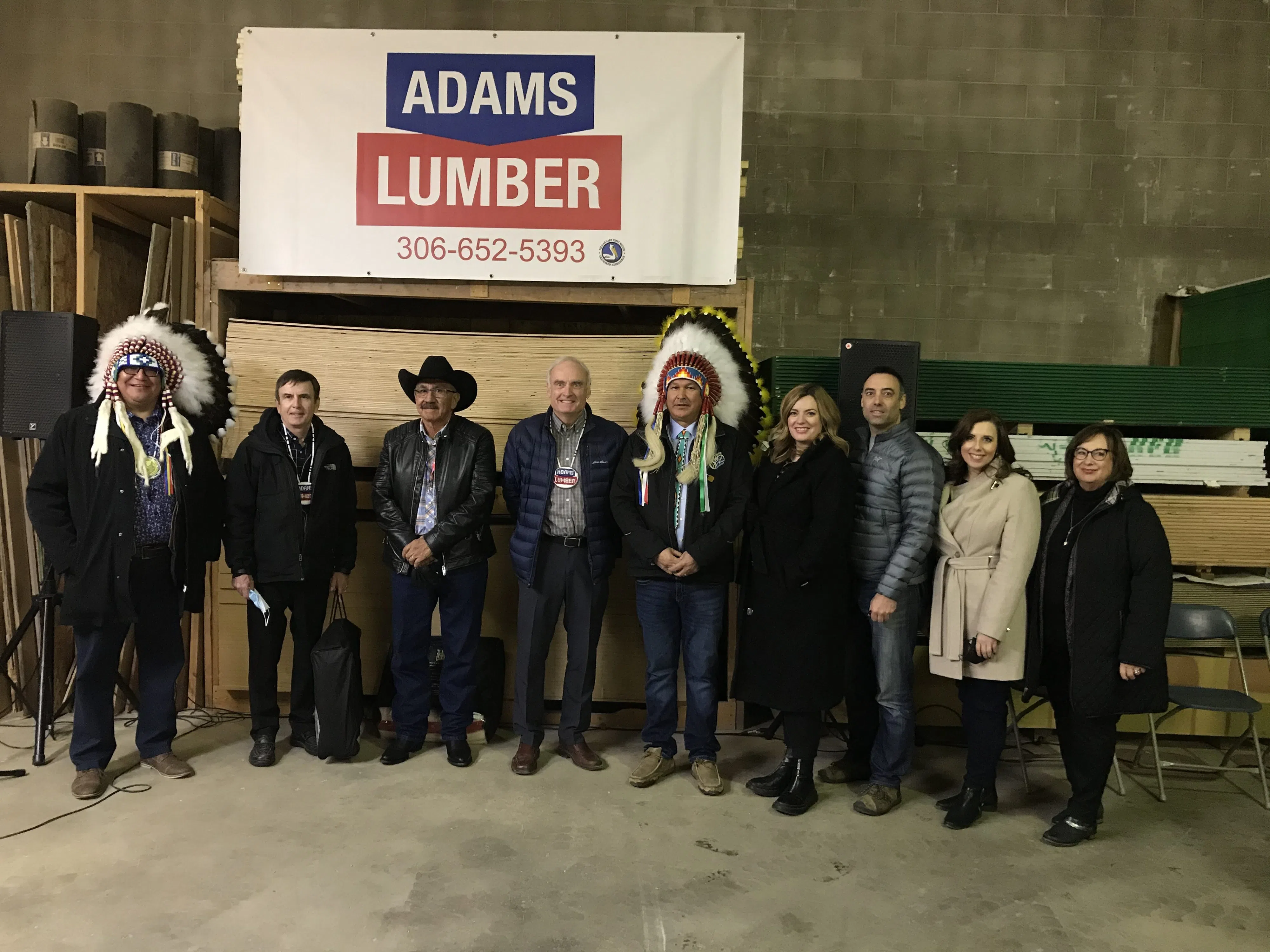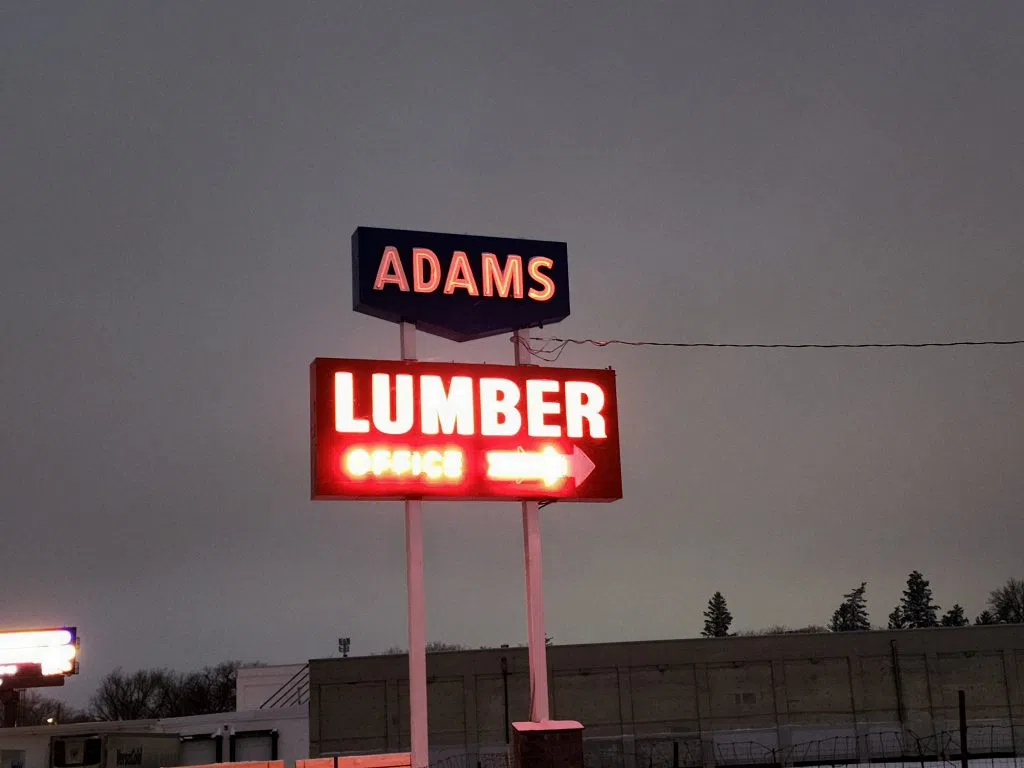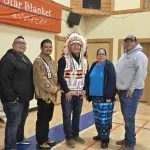
Building a Better Future: Adams Lumber
Adams Lumber is not just striving to build better homes, they’re aspiring to build a better future.
The Saskatoon-based business, a staple in lumber and home building supplies, has served the city for more than 60 years. Most Saskatonians are more likely to be familiar with the iconic ‘Adams Lumber’ sign on Circle Drive but less familiar with the history behind the home-grown company.
Adams Lumber founded in 1963 by Arnold Adams began as a construction company. His son, Vic took over in 1983 and remained at the helm until 2021 when he sold the family business to Pelican Lake First Nation.

The Adams Lumber story continues…
The enterprising team from Pelican Lake still provides the same dependable, high-quality services but is working to expand its reach to First Nation communities.
“We’re Indigenous owned, and we’re fair and honest with good customer service,” said Ryan Bill, Adams Lumber Manager and member of Pelican Lake First Nation. “That’s why people come here.”
The business’s solid reputation is exactly what attracted the First Nation in the first place.
“Vic (Adams) started that sort of dependability and relationships with his customers, and we’re continuing on with that,” said Ryan Bill.
Chief Peter Bill said purchasing the business was a calculated decision and one he hopes will benefit not just his community but all First Nations people in the province.
The acquisition of Adams Lumber now means the Pelican Lake is involved from start to finish when it comes to the harvesting of trees.
Mitosak Askiy, another company wholly owned by Pelican Lake First Nation, has received an allocation from the Province of Saskatchewan to harvest up to 120,000 cubic meters of hardwood and softwood per year.
In 2021, they joined with Witchekan Lake First Nation, and Tolko Industries Ltd. to create Kitaskinaw Enterprises Ltd., which enhances the ability for the First Nations to further their expertise as a logging contractor and develop future business opportunities in sustainable forestry.
Chief Bill believes this approach to business follows the traditional way of harvesting.
“Everything is connected, everything is used from the tree up,” he said. “Purchasing [Adams Lumber] was a natural progression.”
Kitaskinaw will initially focus on the development of a logging company with long-term growth in harvesting, biomass, and silviculture. This includes training for Indigenous youth and women, both on-reserve and off-reserve, in both forestry and mill positions as well as other future business opportunities such as trucking.
Adams Lumber supplies each material component required to build a house, including, windows, flooring, doors, fencing, paint, hardware, tools, and of course, lumber.
Since taking over Adams Lumber, Pelican Lake has been working at providing the best available building supplies, including materials for several ‘passive houses’ – energy efficient homes – at their First Nation.
“Our community is important to us,” said Ryan Bill. “We have three band members working with us now, and during the summer, we always try to give opportunities to youth looking for work.”
Chief Peter Bill is also looking at ways to help other First Nations by providing tax-free building supplies locally and at a great price. “We leverage our relationship with the lumber mills that we supply our harvested trees to, in order to share our benefits with other First Nations.”
Since acquiring the company, Ryan Bill and the team from Pelican Lake, have been working to modernize the company, which previously did things the old–fashioned way on pen and paper.
Adams Lumber is now suppling customers with online estimates and the ability to order online. They’ve also enlivened their marketing strategy through social media channels, and have upgraded much of their essential equipment.
“It means the customers get better service, faster response, and a quicker turnaround for our work,” said Ryan Bill.
The eight-person team running Adams Lumber gives their customers that same family-type customer service the company has been known for since 1963.
“A lot of people tell us they don’t like big box stores because of the poor service,” said Ryan Bill. “They come to us for a more personal service and for better products. That’s what we routinely hear from customers.”

